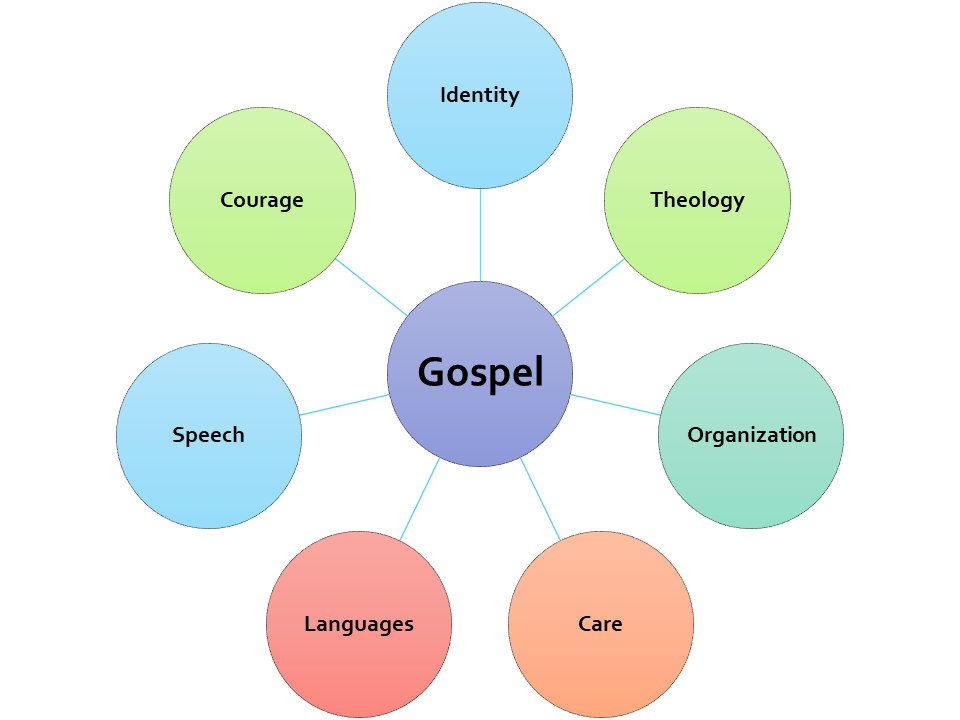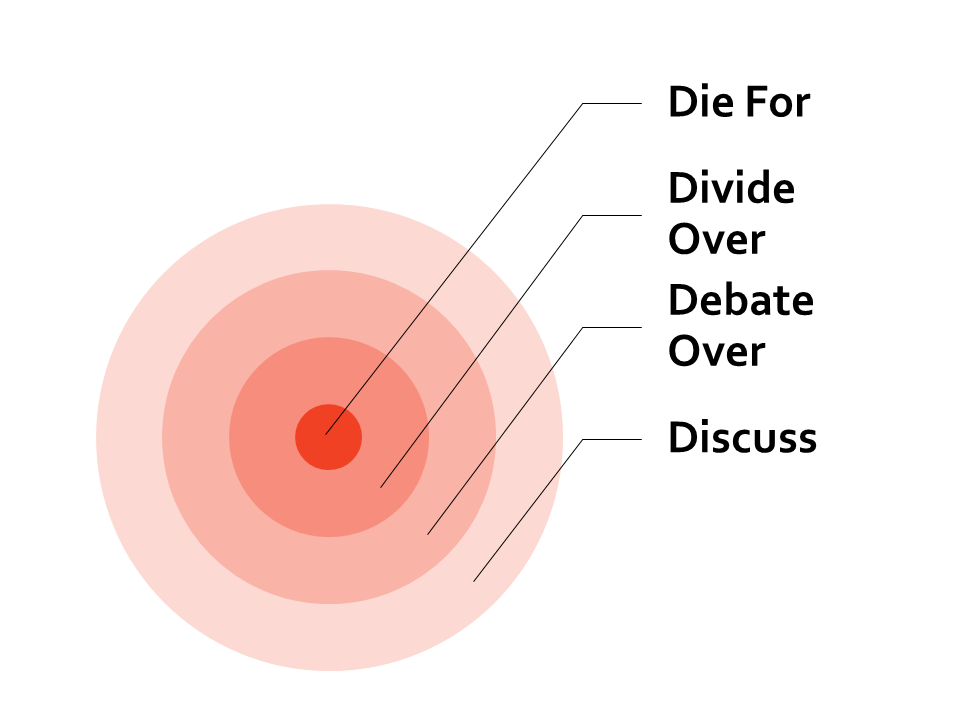Paul says that the gospel is “of first importance” (1 Corinthians 15:3). It is Paul’s first priority, so it must also be our first priority. Jesus Christ and Him crucified are at the heart of Paul’s ministry (1 Corinthians 2:2). So they must be at the heart of our ministry, too.
This has at least seven implications for the Transition/Assessment Team (TAT).

The gospel shapes our identity.
The church must not be held together by the Chinese blood that flows through our veins. The church must be held together by the blood that flowed out of Jesus’ veins (Ephesians 5:25).
“Chinese” is a language we may speak. “Chinese” is a culture and an ethnicity we may inherit. But “Chinese” is not at the core of who we are. Only the gospel goes that deep.
We gather around the gospel spoken in our languages—Cantonese, English, and Mandarin—but we do not gather around the Chinese culture. We do not come primarily for the pork congee; we come for the gospel. The gospel transforms every culture. And where culture and the gospel compete, one must bow to the other.

The gospel shapes our theological priorities.
We need to keep theological issues in perspective, so we don’t overreact or underreact. For example, we shouldn’t condemn someone who disagrees with us about pacifism. But we should contend earnestly against salvation by works.
We can think in four categories: Firstly, some things are worth dying for. Secondly, other things aren’t worth dying for, but they’re worth dividing over. Thirdly, other things aren’t worth dividing over, but they are worth debating. Fourthly, there are some things we really don’t care about.
The first category (“die for”) would include God (e.g., the Trinity) and the gospel (e.g., salvation by faith alone). If you deny these, you may not be saved (e.g., Galatians 1:8-9).
The second category (“divide over”) might include baptism (should you baptize babies?) and the role of women in the church (can women be preaching pastors?). If Christians disagree on these, they might not be able to be members of the same church.
The third category (“debate”) might include details of the end times and politics. Christians can disagree on these things but still be members of the same church.
The fourth category (“don’t care”) might include the pronunciation of obscure facts (e.g., how many angels can dance on the head of a pin?).
The gospel shapes our organizational priorities.
The gospel’s progress is more important than our man-made organizational structures. And if our man-made organizational structures impede the gospel’s progress, we should be open to changing our organizational structures.
Our first allegiance is to the gospel, not our “3-in-1” structure. Administrative division is not necessarily evil; acrid divisiveness is (Titus 3:10).
The gospel shapes our care.
The gospel comes to real people who need real care (Acts 20:28). We must care for real people, not just theoretical ideals.
So we should be willing to compromise on some things. A number of approaches could serve people well. Some changes may not be worth making, for the sake of real people.
The gospel shapes our languages.
To receive the gospel, we must receive it in our own language (Romans 10:17, 1 Corinthians 14:11). Our language is not “of first importance,” but it is necessary so we can hear the gospel that is “of first importance.”
The Cantonese, English, and Mandarin languages are necessary, for the gospel’s sake.
The gospel shapes our speech.
Ephesians 4:15 tells us to speak the truth in love. And on the TAT, both truth and love are essential in our speech.
If we don’t let others speak with truth, we won’t see our blind spots. If we don’t let others speak with candor, we won’t uncover our problems.
But if we don’t speak with love, others won’t feel safe. If we don’t speak with kindness, others won’t speak candidly, because they’ll wonder if they’re walking into a trap. They may hear our critiques, but they will become hardened to them.
Instead, we must be the safest, kindest people at church. We must listen primarily to understand and empathize, not to debate and criticize. We must be quick to hear, slow to speak, and slow to anger.
Others must know that we will never gossip or betray them. Even when we must speak of someone’s weakness, we must not take joy in it. And when we disagree with someone, we must be willing to die for him, not crucify him.
The gospel is the highest blend of truth and love. The gospel tells us the hard truth: we are sinful beyond measure. But the gospel also tells us the deepest love: Jesus Christ loved us and gave Himself up for us, despite our deepest sins.
We have been saved by Jesus’ blend of truth and love. We must extend that same truth and love to others.
The gospel shapes our courage.
No matter what we recommend, it will be criticized. (And some of that criticism may be warranted!)
But if God is for us, who can be against us? We can stand in the face of all those criticisms and say, “All you say about me is true. But we have done even worse things, and Jesus’ blood covers even those. We stand in Christ’s blood and righteousness” (Romans 8:31-34).
We have been accepted where it really counts: the courtroom of God. So now we can face whatever comes in the courtroom of public opinion.
